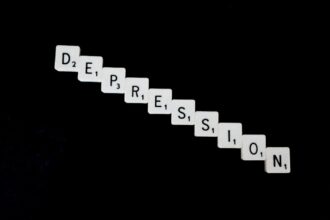Depersonalization-Derealization Disorder (DPDR) is a complex mental health condition that can leave you feeling detached from your own thoughts, feelings, and sense of self. You may experience a sense of unreality regarding your surroundings, as if the world around you is not quite real. This disorder can manifest in various ways, leading to feelings of disconnection that can be both unsettling and confusing.
It is important to understand that DPDR is not simply a fleeting feeling of being out of touch; it is a persistent condition that can significantly impact your daily life. The experience of depersonalization involves a sense of detachment from oneself, where you might feel like an observer of your own life rather than an active participant. On the other hand, derealization refers to the perception that your environment is distorted or unreal.
These experiences can be triggered by stress, trauma, or anxiety, and they can occur in episodes that may last for varying lengths of time. Understanding DPDR is crucial for recognizing its symptoms and seeking appropriate help.
Key Takeaways
- Depersonalization-Derealization Disorder is a mental health condition characterized by feeling detached from oneself and the surrounding environment.
- Symptoms of Depersonalization-Derealization Disorder include feeling like an outside observer of one’s thoughts and actions, as well as experiencing a sense of unreality or detachment from the world.
- The causes of Depersonalization-Derealization Disorder are not fully understood, but may be related to trauma, stress, or anxiety.
- Depersonalization-Derealization Disorder can have a significant impact on daily life, affecting relationships, work, and overall well-being.
- Recognizing the need for testing and seeking a qualified professional is crucial for obtaining an accurate diagnosis and appropriate treatment for Depersonalization-Derealization Disorder.
Symptoms of Depersonalization-Derealization Disorder
The symptoms of Depersonalization-Derealization Disorder can vary widely from person to person, but they often include feelings of detachment from oneself and the environment. You might find yourself questioning your identity or feeling as though you are living in a dream. This can lead to a profound sense of confusion and anxiety, as you struggle to reconcile your experiences with reality.
Some individuals report feeling as if they are watching themselves from outside their bodies, which can be both disorienting and frightening. In addition to these core symptoms, you may also experience cognitive difficulties, such as trouble concentrating or remembering details about your life. Emotional numbness is another common symptom, where you might feel disconnected from your emotions or unable to experience joy or sadness fully.
These symptoms can be distressing and may lead to avoidance behaviors, where you try to escape situations that trigger feelings of depersonalization or derealization. Recognizing these symptoms is the first step toward understanding your experiences and seeking help.
Understanding the Causes of Depersonalization-Derealization Disorder

The exact causes of Depersonalization-Derealization Disorder are not fully understood, but several factors may contribute to its development. One significant factor is trauma, particularly during childhood. If you have experienced abuse, neglect, or other traumatic events, your mind may develop coping mechanisms that include dissociation, leading to feelings of depersonalization or derealization.
This dissociative response can serve as a protective mechanism, allowing you to distance yourself from overwhelming emotions or experiences. Additionally, high levels of stress and anxiety can trigger episodes of DPDR.
Neurobiological factors may also play a role; research suggests that certain brain regions involved in processing self-awareness and perception may function differently in individuals with DPDR. Understanding these potential causes can help you make sense of your experiences and guide you toward effective treatment options.
The Impact of Depersonalization-Derealization Disorder on Daily Life
| Impact Area | Metrics |
|---|---|
| Social Life | Decreased social interactions |
| Work/School | Difficulty concentrating |
| Emotional Well-being | Feelings of detachment |
| Physical Health | Increased stress and anxiety |
| Quality of Life | Impaired overall quality of life |
Living with Depersonalization-Derealization Disorder can significantly affect your daily life and overall well-being. You may find it challenging to engage in social situations or maintain relationships due to feelings of disconnection. This disorder can create barriers to forming meaningful connections with others, as you might feel like an outsider looking in.
The emotional toll can lead to isolation and loneliness, further exacerbating feelings of detachment. Moreover, the cognitive difficulties associated with DPDR can interfere with your ability to perform daily tasks effectively. You might struggle with concentration at work or school, leading to decreased productivity and increased frustration.
The constant battle with feelings of unreality can also contribute to anxiety and depression, creating a cycle that is difficult to break. Recognizing how DPDR impacts your life is essential for seeking support and finding ways to cope with these challenges.
Recognizing the Need for Testing
If you suspect that you may be experiencing symptoms of Depersonalization-Derealization Disorder, recognizing the need for testing is a crucial step toward understanding your condition. Many individuals may dismiss their experiences as temporary stress or anxiety, but persistent feelings of detachment warrant further exploration. Seeking professional help can provide clarity and validation for what you are going through.
Testing for DPDR typically involves a comprehensive evaluation by a mental health professional who specializes in dissociative disorders. This process can help differentiate DPDR from other mental health conditions that may present similar symptoms, such as anxiety disorders or depression. By acknowledging the need for testing, you take an important step toward gaining insight into your experiences and accessing appropriate treatment options.
Types of Tests for Depersonalization-Derealization Disorder

When it comes to testing for Depersonalization-Derealization Disorder, mental health professionals typically employ a combination of clinical interviews and standardized assessment tools. During the clinical interview, you will have the opportunity to discuss your symptoms in detail, including their onset, duration, and impact on your daily life. This conversation allows the clinician to gather valuable information about your experiences and any potential underlying factors contributing to your condition.
Standardized assessment tools may also be used to evaluate the severity and frequency of your symptoms. These questionnaires are designed to measure various aspects of depersonalization and derealization experiences, providing a clearer picture of your condition. By utilizing both clinical interviews and standardized tests, mental health professionals can arrive at a more accurate diagnosis and develop an effective treatment plan tailored to your needs.
Finding a Qualified Professional for Testing
Finding a qualified professional for testing is an essential step in addressing your concerns about Depersonalization-Derealization Disorder. You may want to start by seeking recommendations from trusted sources, such as friends, family members, or primary care physicians. Look for mental health professionals who specialize in dissociative disorders or have experience working with individuals experiencing similar symptoms.
When searching for a therapist or psychologist, consider their credentials, experience, and approach to treatment. It’s important to feel comfortable with the professional you choose, as building a trusting relationship can significantly impact the effectiveness of the testing process and subsequent treatment. Don’t hesitate to ask questions about their experience with DPDR and their approach to diagnosis and therapy.
What to Expect During the Testing Process
During the testing process for Depersonalization-Derealization Disorder, you can expect a thorough evaluation that aims to understand your unique experiences and challenges. The initial appointment typically involves a detailed clinical interview where the professional will ask about your symptoms, medical history, and any relevant life events that may have contributed to your condition. This conversation is an opportunity for you to share your experiences openly and honestly.
Following the interview, standardized assessments may be administered to gauge the severity and frequency of your symptoms. These assessments are usually straightforward questionnaires that require you to reflect on your experiences over a specific period. The entire process may take one or more sessions, depending on the complexity of your case and the professional’s approach.
Remember that this evaluation is designed to help you gain insight into your condition and guide future treatment options.
Interpreting the Results of Depersonalization-Derealization Testing
Once the testing process is complete, you will receive feedback on the results from your mental health professional. Interpreting these results is crucial for understanding your diagnosis and determining the best course of action moving forward. Your clinician will explain how your symptoms align with the criteria for Depersonalization-Derealization Disorder and discuss any other relevant findings from the assessment.
It’s important to approach this feedback with an open mind and a willingness to engage in further discussion. Your clinician may provide insights into how DPDR affects your mental health and suggest potential treatment options tailored to your needs. Understanding the results can empower you to take proactive steps toward managing your condition effectively.
Next Steps After Receiving a Diagnosis
After receiving a diagnosis of Depersonalization-Derealization Disorder, it’s natural to feel a mix of emotions—relief at having an explanation for your experiences and concern about what lies ahead. The next steps involve collaborating with your mental health professional to develop a comprehensive treatment plan that addresses your specific needs. Treatment options may include therapy modalities such as cognitive-behavioral therapy (CBT), mindfulness practices, or medication management.
Engaging in therapy can provide you with valuable coping strategies and tools to manage symptoms effectively. Additionally, exploring support groups or online communities can help you connect with others who share similar experiences, reducing feelings of isolation. Remember that recovery is a journey; it’s essential to be patient with yourself as you navigate this process.
Resources for Coping with Depersonalization-Derealization Disorder
Coping with Depersonalization-Derealization Disorder requires a multifaceted approach that includes both professional support and self-care strategies. Numerous resources are available to help you manage your symptoms effectively. Consider exploring books on DPDR written by mental health professionals or individuals who have experienced similar challenges; these resources can provide valuable insights and coping techniques.
Online forums and support groups can also be beneficial for connecting with others who understand what you’re going through. Sharing experiences and strategies with peers can foster a sense of community and reduce feelings of isolation. Additionally, mindfulness practices such as meditation or grounding exercises can help anchor you in the present moment when feelings of detachment arise.
By utilizing these resources and actively engaging in self-care practices, you can work toward managing DPDR more effectively and improving your overall quality of life.
If you’re exploring how to get tested for depersonalization-derealization disorder, it’s essential to understand the broader context of mental health assessments and the resources available. A related article that might provide further insights into mental health evaluations and support systems can be found on Unplugged Psychology’s website. This article delves into various psychological conditions and the importance of professional guidance in diagnosing and managing them. For more detailed information, you can visit the article by following this com/sample-page/’>link
This resource can be a valuable addition to your understanding of mental health disorders and the steps involved in seeking help.
Learn More About Depersonalization & Derealization
FAQs
What is depersonalization-derealization disorder?
Depersonalization-derealization disorder is a mental health condition characterized by feeling detached from oneself (depersonalization) and feeling detached from the world around them (derealization). It can be distressing and impact daily functioning.
What are the symptoms of depersonalization-derealization disorder?
Symptoms of depersonalization-derealization disorder may include feeling like an outside observer of one’s thoughts, feelings, and body, feeling like the world is unreal or distorted, and experiencing emotional or physical numbness.
How can I get tested for depersonalization-derealization disorder?
To get tested for depersonalization-derealization disorder, it is important to seek help from a mental health professional such as a psychiatrist or psychologist. They can conduct a thorough assessment, which may include interviews, questionnaires, and psychological evaluations.
What should I expect during the testing process?
During the testing process, you can expect to discuss your symptoms, personal history, and any factors that may contribute to your experiences. The mental health professional may also ask you to complete questionnaires or assessments to gather more information.
Can depersonalization-derealization disorder be diagnosed by a general practitioner?
While a general practitioner may be able to provide an initial evaluation and referral, a formal diagnosis of depersonalization-derealization disorder is typically made by a mental health professional such as a psychiatrist or psychologist.
What are the treatment options for depersonalization-derealization disorder?
Treatment for depersonalization-derealization disorder may include psychotherapy, medication, and self-help strategies. Cognitive-behavioral therapy (CBT) and mindfulness-based approaches are commonly used to help individuals manage their symptoms. It is important to work with a mental health professional to determine the most appropriate treatment plan.




